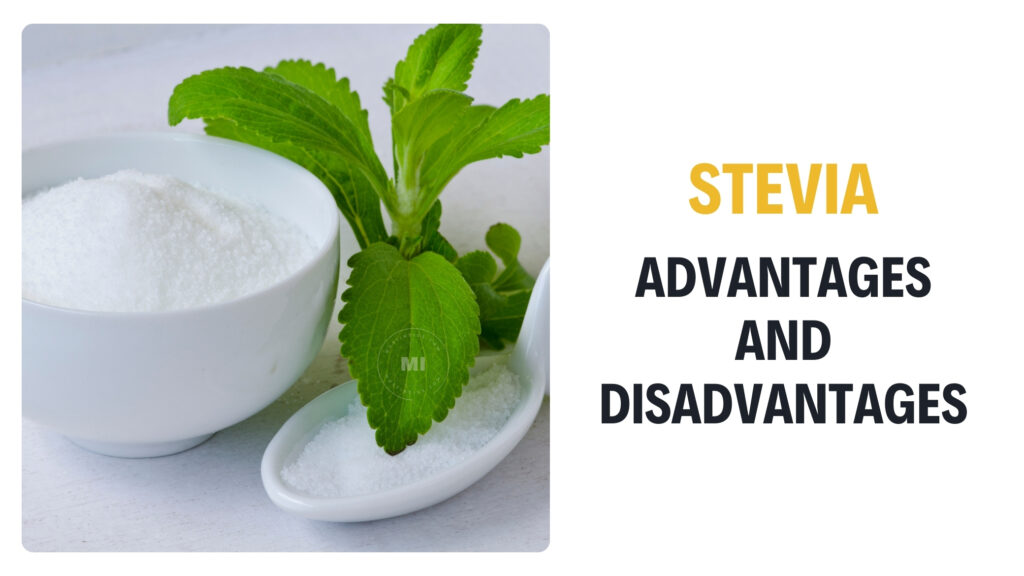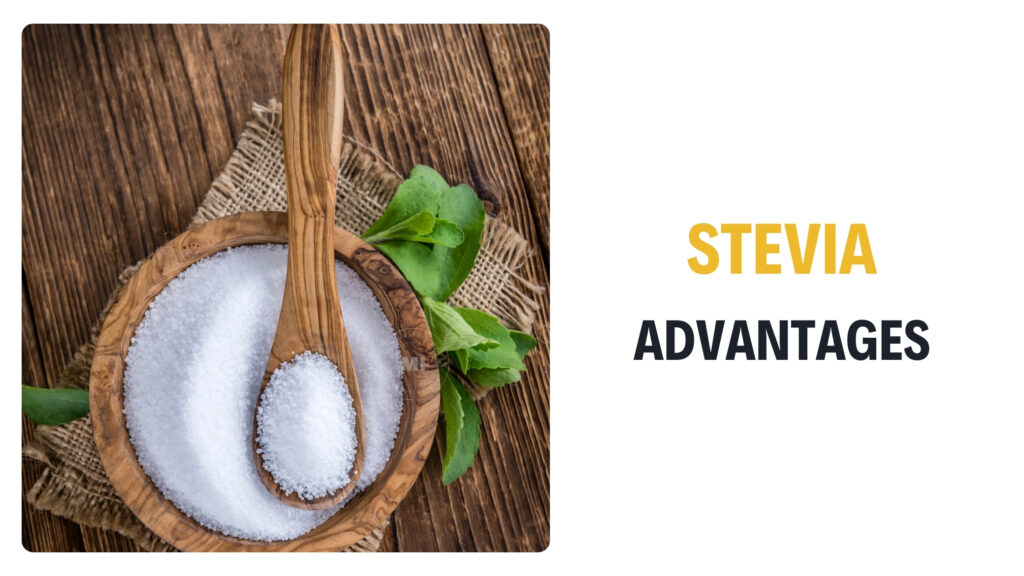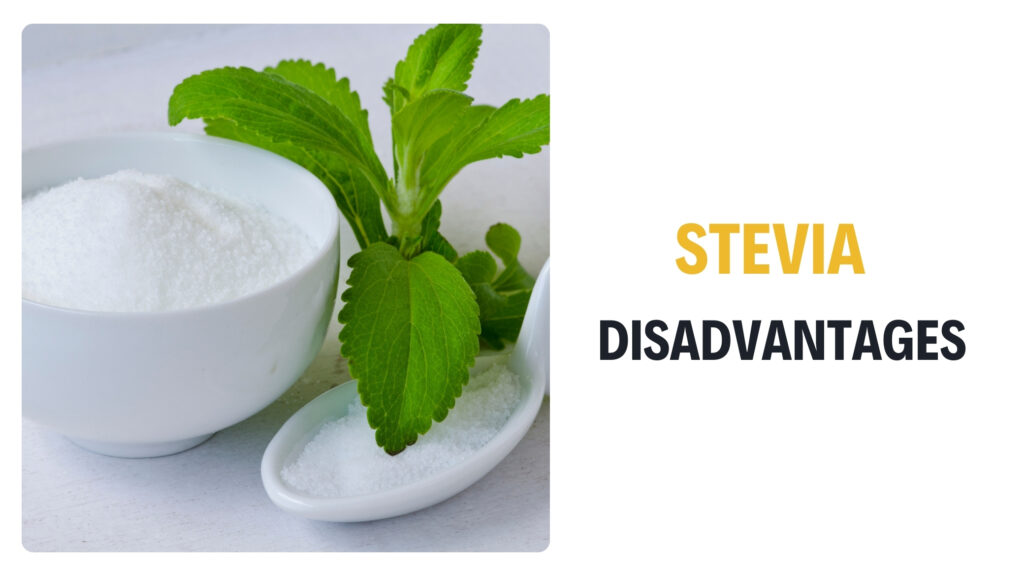Advantages and Disadvantages of Consuming Stevia

Stevia is a plant-based natural sweetener often used as a substitute for sugar derived from the plant species called Stevia Rebaudiana, commonly found in Paraguay and Brazil.
Stevia has 5 to 300 times more sweetness than ordinary sugar. It is due to the presence of steviol glycosides. Stevia is a very popular low-calorie sweetener, making it a healthier choice for consumers to buy.
Is Stevia a healthy choice?
Stevia is the best sugar substitute that eliminates the negative health impact associated with refined sugar. Being a better sugar substitute it is also beneficial to reduce calorie intake, risks of cavities, and blood sugar levels. Apart from its benefits, it also has some side effects. Overconsumption of Stevia can cause kidney damage due to its diuretic nature. Low blood pressure levels and other health issues are common problems with those consuming Stevia.
Advantages of consuming Stevia

1. Diabetes
Stevia is a good substitute for diabetic patients as it makes negligible changes in insulin levels in the body. In some cases, it is effective in reducing blood glucose and glucagon levels when consumed after meals. Due to its low calorie and sucrose content, it is a healthier option for diabetic patients.
2. Cancer
Stevia contains a glycoside called stevioside. It helps boost cancer cell death in humans and also helps to block the pathways that promote such growth. It also contains antioxidant compounds called kaempferol which is beneficial in reducing the risk of pancreatic cancer.
3. Weight loss
Increasing obesity is a common problem for those who eat high-calorie food. This can be controlled by replacing sugar with Stevia. Stevia contains no sugar and hence is low in calories without compromising on taste. Hence, it can be effective to balance a high-calorie diet.
Disadvantages of consuming Stevia

1. Kidney damage
Stevia may impact the water and electrolyte balance in the body due to its diuretic properties. Since the kidney is responsible for filtering and creating urine long-term consumption of Stevia can harm kidney cells leading to fatal kidney damage. However, updated research proves that moderate consumption of Stevia helps prevent kidney damage.
2. Low blood pressure
Long-term consumption of Stevia tends to widen the blood vessels which results in low blood pressure. Excessive long-term intake of Stevia can cause health complications. Hence, it is advisable to consult a doctor for its long-term use.
3. Hypoglycemia or low blood sugar levels
Although Stevia is a good option over sugar for diabetic patients, long-term consumption of Stevia can lead to problems such as low blood sugar levels which can further cause hypoglycemia.
Conclusion
Stevia is an ideal sugar substitute and is the most popular choice for diabetic patients and fitness lovers. It has low calories and a much sweeter taste than sugar. Nevertheless, excessive consumption of Stevia for a longer duration can lead to various health issues. Moreover, Stevia should be limited to a specific dosage or should be taken only in consultation with the health expert.
References:
Everything You Need to Know About Stevia, Retrieved from Health Line. https://www.healthline.com/health/food-nutrition/stevia-side-effects
Stevia: Health benefits, side effects and more, Retrieved from Times of India. https://timesofindia.indiatimes.com/life-style/health-fitness/diet/stevia-health-benefits-side-effects-and-more/articleshow/83603055.cms
Does stevia have any side effects? Retrieved from Medical News Today. https://www.medicalnewstoday.com/articles/319837#risks-and-side-effects
Image credits: Avantplex Team
(PLEXAVANT1013AC)
Recommended For You
Ensure Your Child Has Everything They Need With These Tips
Sangati Jogwar
Sangati is a writer, poet, voracious book reader, singer, movie-buff and critic. Loves to discuss, interact and have a strong belief in spirituality.




